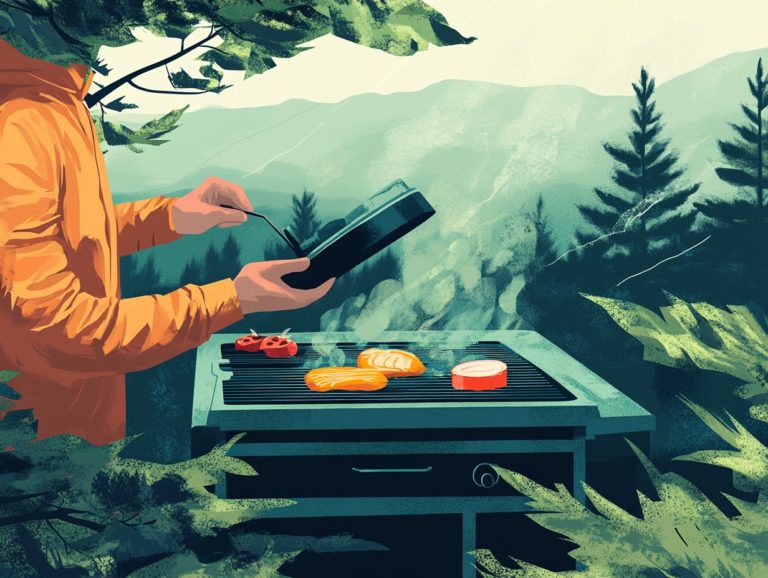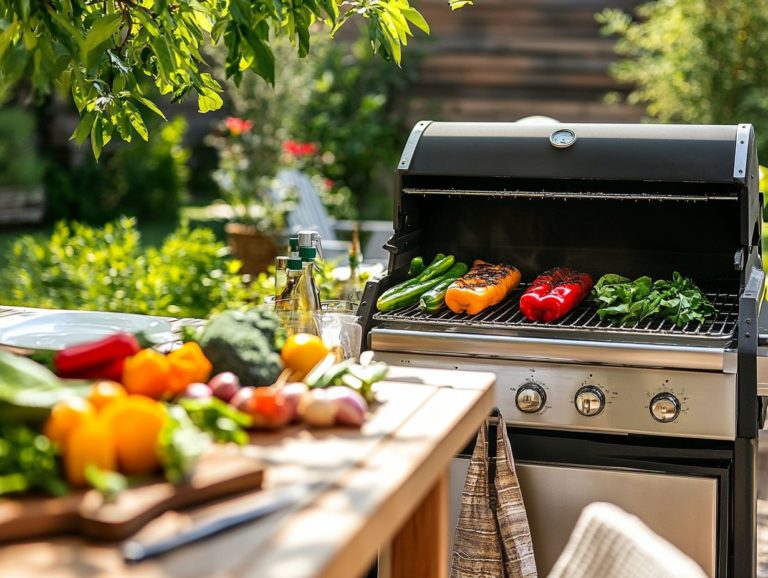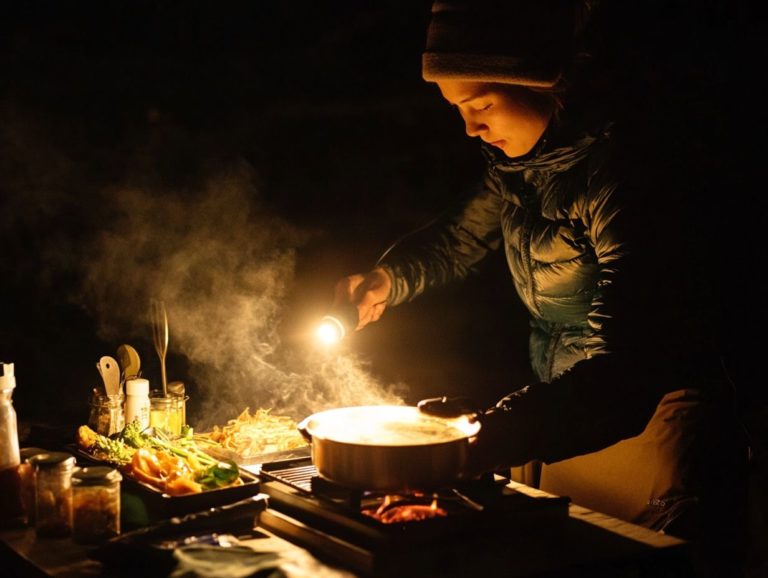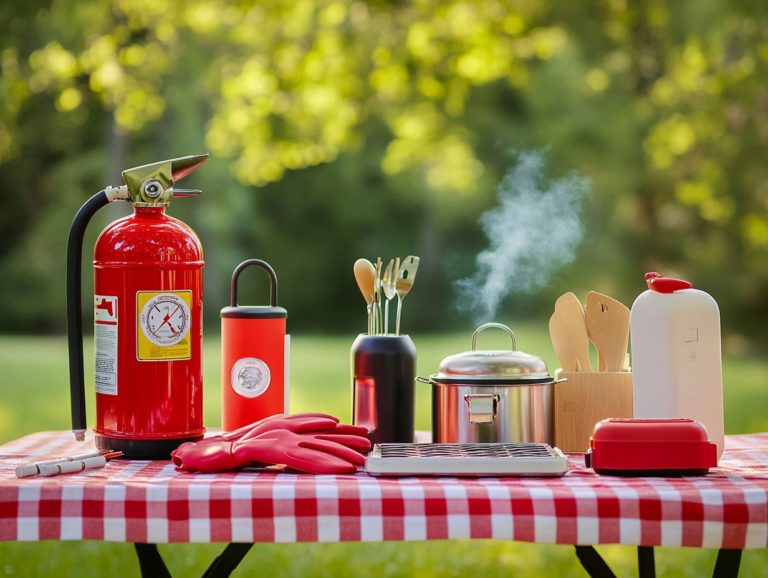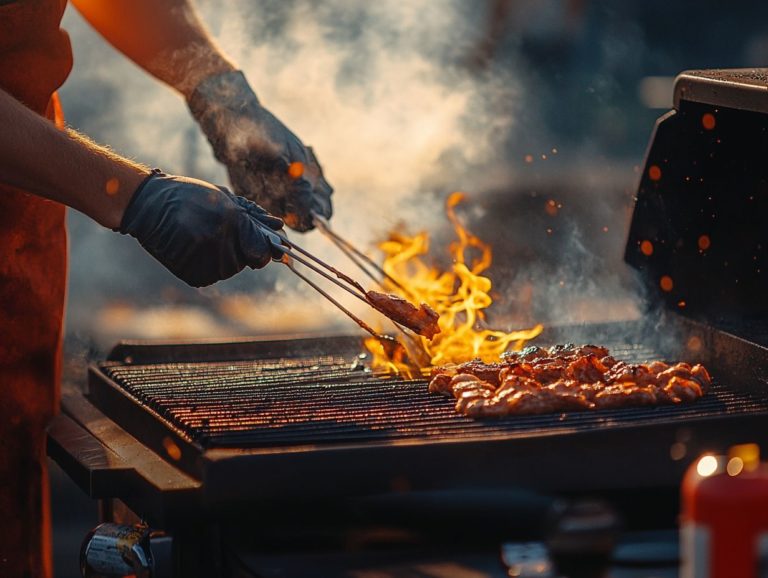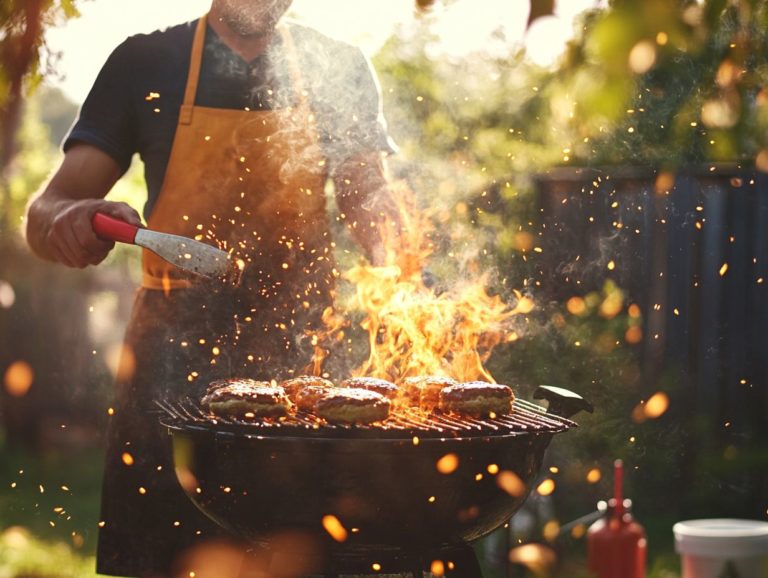Recognizing Signs of Food Spoilage While Camping
When you re out in the great outdoors, encountering spoiled food is the last thing you need. Recognizing the signs of spoilage is vital for your health and an enjoyable camping experience.
This article delves into the common causes of food spoilage, highlighting the visual and sensory indicators you should be vigilant about. It also covers effective storage techniques to keep your food fresh while camping.
It covers best practices for the safe disposal of spoiled food. Stay informed and elevate your camping adventures to the next level!
Contents
- Key Takeaways:
- Common Causes of Food Spoilage
- Signs of Spoiled Food
- Preventing Food Spoilage While Camping
- What to do if You Encounter Spoiled Food
- Frequently Asked Questions
- What are the signs of food spoilage while camping?
- How can I prevent food spoilage while camping?
- What is the best way to store food while camping and ensure food safety?
- What should I do if I suspect food spoilage or signs of spoilage while camping?
- Can I still eat food that has been frozen and thawed while camping?
- Is it safe to eat canned food that has been dented or damaged while camping?
Key Takeaways:
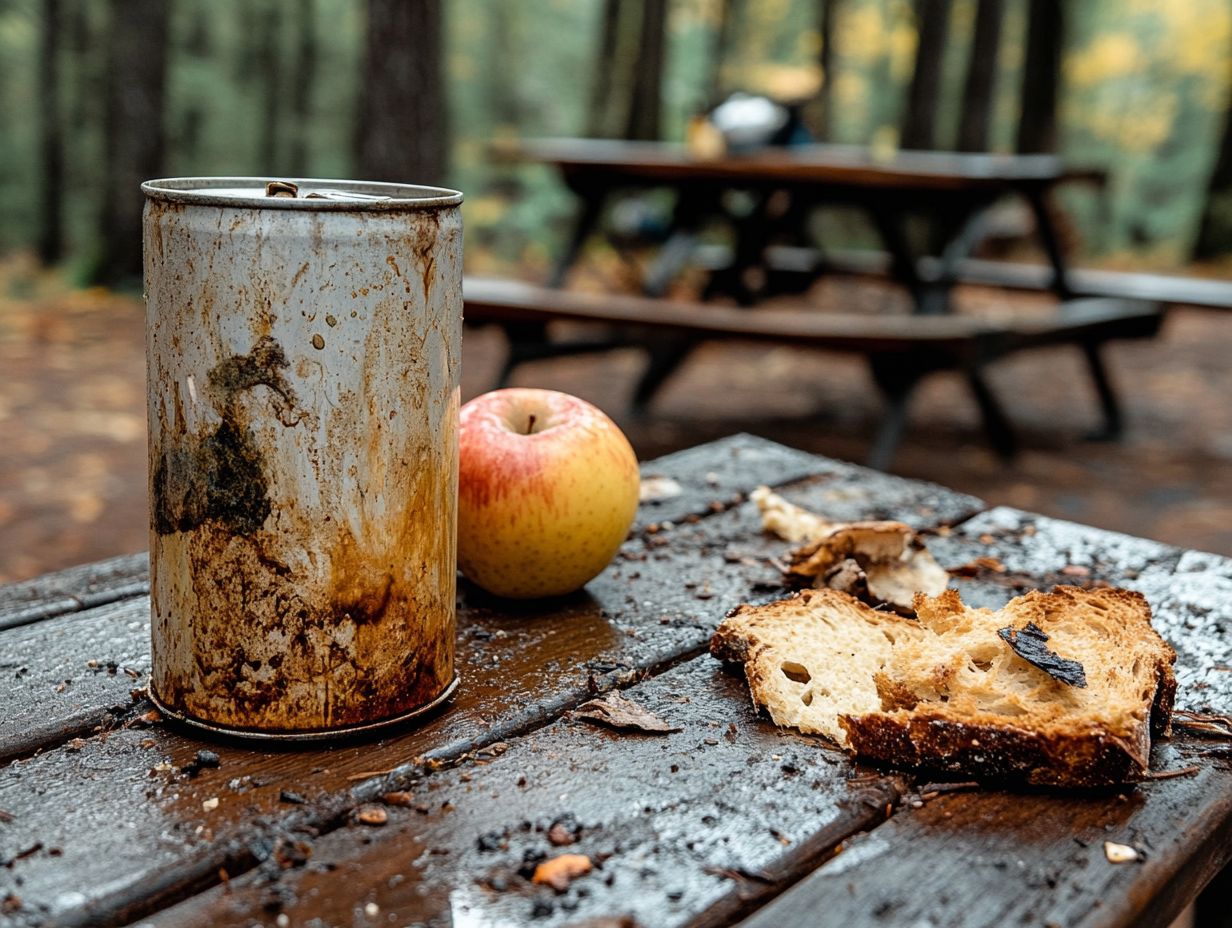
- Recognizing signs of food spoilage is crucial for preventing foodborne illnesses while camping.
- Visual indicators, such as discoloration and foul odor, help identify spoiled food.
- Proper storage and handling techniques prevent spoilage and ensure safety.
Why is it Important to Recognize Signs of Spoilage?
Recognizing the signs of spoilage is essential for maintaining food safety and preventing food poisoning. Spoilage can lead to the rise of harmful tiny living things like Clostridium botulinum, which brings the risk of botulism. By spotting these signs early, you can keep your meals safe!
Being attuned to changes like discoloration, off smells, and unusual textures enables you to take proactive measures to prevent illness. For example, if you catch a sour odor in dairy products, that s your cue for potential bacterial growth. Likewise, slime on meats is a clear indicator of spoilage from harmful organisms.
Stay sharp! Recognizing these spoilage signs can safeguard your health. Failing to recognize spoilage can lead to serious health issues, from gastrointestinal distress to, in severe cases, life-threatening conditions. Cultivating an understanding of spoilage signs enables you to protect not just your health, but also that of your loved ones.
Common Causes of Food Spoilage
Food spoilage can stem from several common causes, including the growth of harmful tiny living things, insufficient preservation methods, and improper handling practices like cross-contamination, all of which can jeopardize food safety.
Factors that Contribute to Food Spoilage
Several factors contribute to food spoilage, and understanding them can significantly enhance your culinary experience. The freezing process, for instance, slows down the growth of tiny living things and effectively halts spoilage. However, you may notice that some foods change texture once thawed.
Canning is another method that involves heating food to eliminate bacteria and enzymes. Then, it’s sealed in an airtight container to further prevent spoilage. Be cautious, though improper sealing can lead to the dangerous growth of botulinum bacteria, which is definitely not on your menu.
Salt concentration is also crucial in preservation. High salt levels draw moisture out of cells, inhibiting microbial growth and enabling foods like pickles to retain their vibrant flavor.
Fermentation takes a different approach by harnessing controlled microbial activity to transform sugars into acids or alcohol. This process not only extends shelf life but also enhances flavors, as you can taste in products like yogurt and sauerkraut.
Signs of Spoiled Food
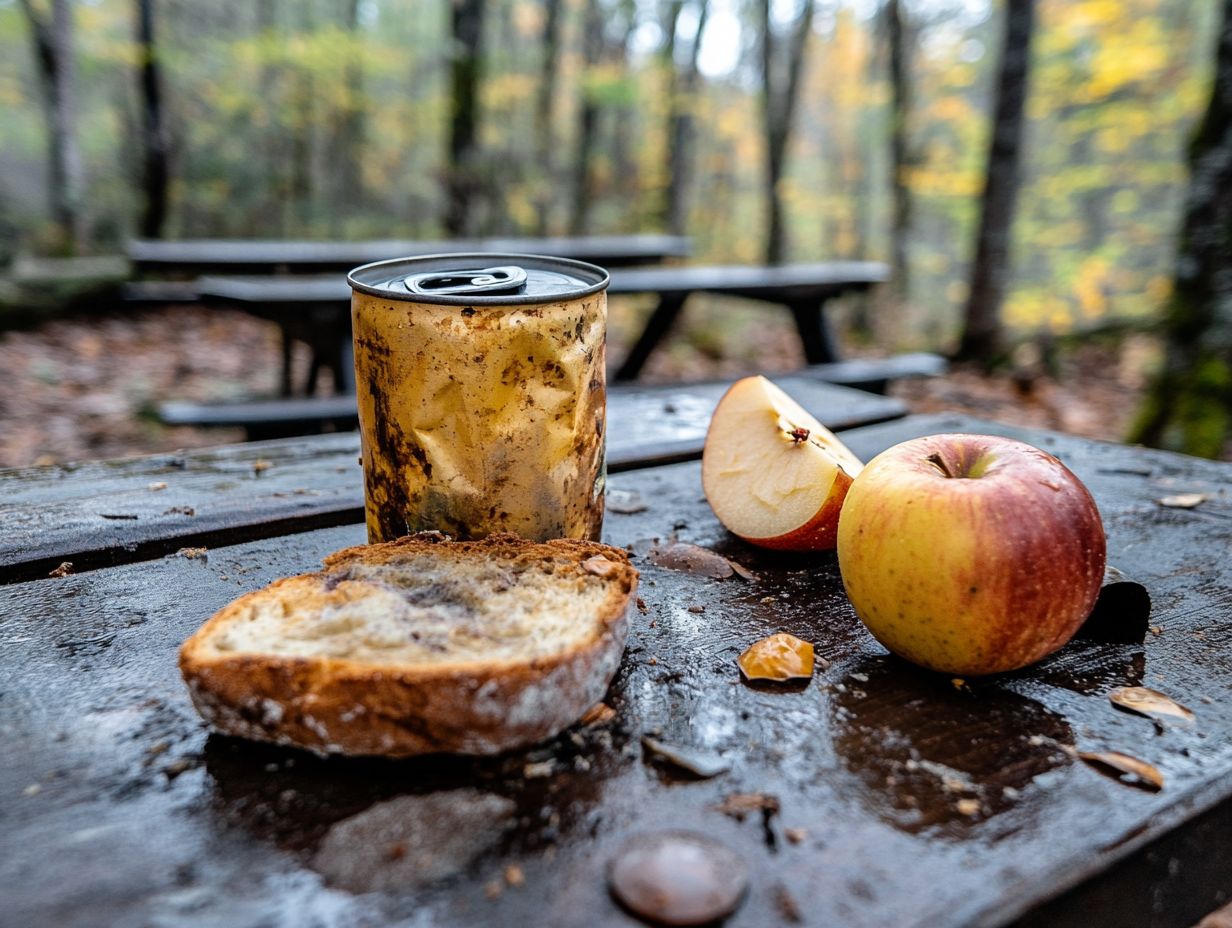
Recognizing the signs of spoiled food is crucial for maintaining your food safety. Visual cues and sensory indicators can alert you to potential risks of food poisoning and contamination that may stem from consuming compromised products.
Being discerning in this regard enables you to make informed choices and protect your health.
Have tips or stories about camping food safety? Share them with us!
Visual and Sensory Indicators
Spotting visual and sensory signs of spoilage is crucial for food safety. Look for discoloration, off-odors, and strange textures that indicate food may not be safe.
Paying attention to these indicators can protect you from foodborne illnesses. For instance, fresh berries like strawberries and raspberries can develop mold or become mushy, signaling that they are no longer safe to eat.
In dairy products, a sour smell is a clear warning of spoilage. When checking meats like chicken or beef, look for a slimy texture and a color change from bright red to dull brown.
Recognizing these signs profoundly impacts your health. This knowledge helps you make informed choices in the kitchen.
Preventing Food Spoilage While Camping
To enjoy your outdoor adventures safely, preventing food spoilage is key. Use effective storage and handling techniques to minimize risks.
With these precautions, you can enjoy delightful meals without worrying about spoilage.
Proper Storage and Handling Techniques
Proper storage and handling are vital for keeping food safe while camping. These practices ensure your food stays fresh throughout your trip.
Maintain the right temperature and use coolers effectively to reduce the risk of foodborne illnesses. Layer ice packs or blocks of ice in your cooler to keep perishables like meat and dairy fresh.
Separate raw and cooked foods to prevent mixing, which can lead to illness. Regularly check the cooler’s temperature and use airtight containers to enhance your food safety.
What to do if You Encounter Spoiled Food
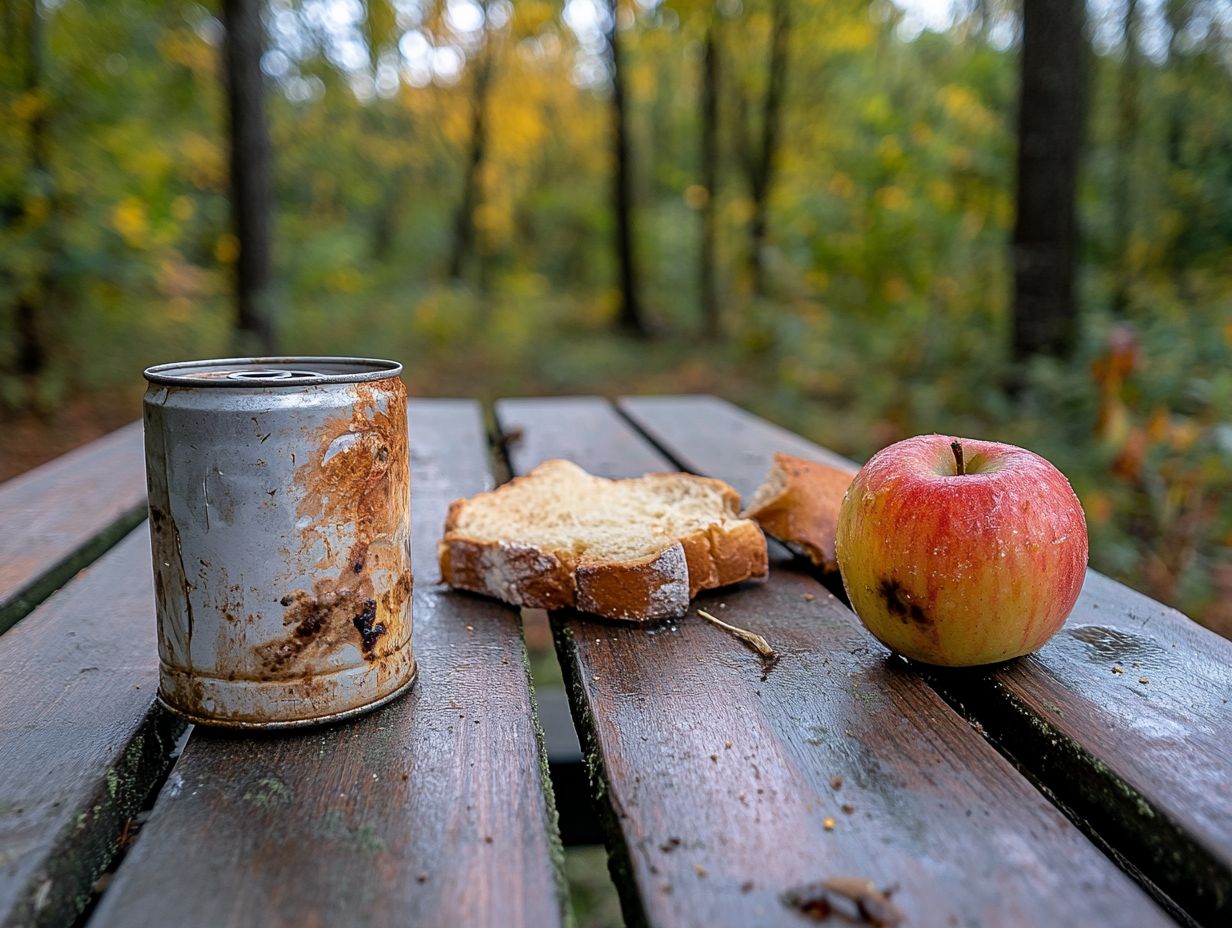
If you find spoiled food, dispose of it properly to avoid health risks. Don’t hesitate to ask a health educator or a poison control center for advice if something seems off.
Your health and safety should always come first.
Disposing of Spoiled Food and Avoiding Contamination
Properly disposing of spoiled food is essential to prevent contamination. Incorrect disposal can lead to health risks and attract pests.
To keep your kitchen clean and safe, practice effective waste management. Separate spoiled food from fresh items before throwing them out. If possible, compost biodegradable waste.
Seal waste bags tightly to minimize odors and deter pests. Regularly clean your refrigerator and pantry to reduce spoilage risks and contribute to a healthier environment.
Stay vigilant about expiration dates and the condition of your food to help reduce waste and maintain cleanliness.
Importance of Being Aware of Food Spoilage While Camping
Being aware of food spoilage while camping is key to keeping your food safe. Recognizing potential risks helps you prevent foodborne illnesses.
Spotting signs of spoilage lets you choose safe meals. This awareness helps you save resources and plan meals better.
Using good food storage techniques improves your camping experience. Enjoy meals without worry and focus on the beauty of nature.
Frequently Asked Questions
What are the signs of food spoilage while camping?
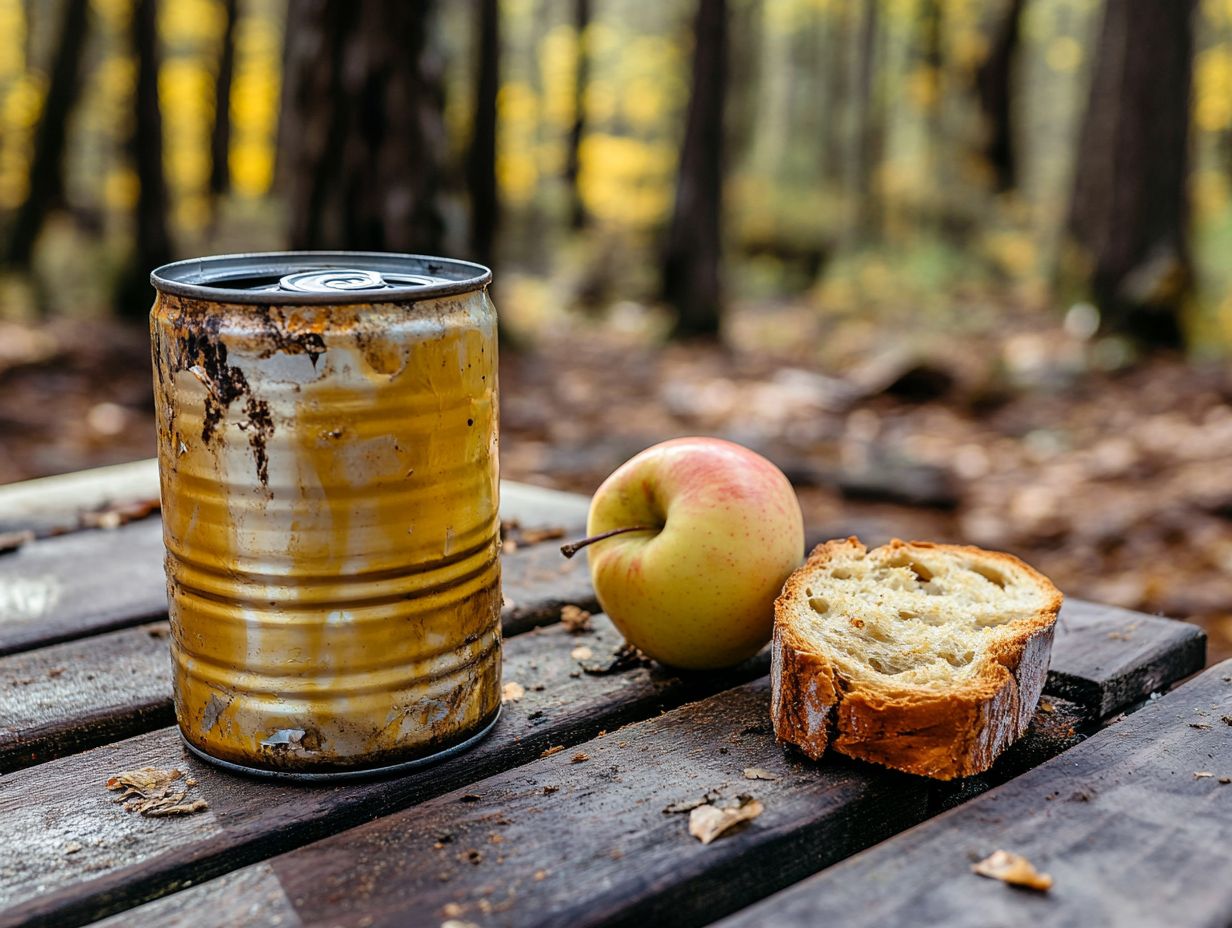
Common signs include foul odors, mold, a slimy texture, and an off taste. Watch for these to avoid getting sick.
How can I prevent food spoilage while camping?
To prevent food spoilage, store food in airtight containers or coolers. Keep perishable items below 40 degrees Fahrenheit and clean cooking tools to avoid cross-contamination.
What is the best way to store food while camping and ensure food safety?
The best way to store food is in airtight containers or coolers with ice to maintain a temperature below 40 degrees Fahrenheit. Separate raw meats from other foods and pack non-perishables that don t need refrigeration.
What should I do if I suspect food spoilage or signs of spoilage while camping?
If you suspect spoilage, it s best to throw out the food. Consuming spoiled items can lead to food poisoning, so it’s safer to discard them.
Can I still eat food that has been frozen and thawed while camping?
If the food was thawed at a safe temperature (below 40 degrees Fahrenheit), it should be safe to eat. Be sure to cook it thoroughly to kill any bacteria that may have developed.
Is it safe to eat canned food that has been dented or damaged while camping?
No, it is not safe to eat dented or damaged canned food. Damage can allow bacteria in, leading to food poisoning, so inspect cans before you pack.

